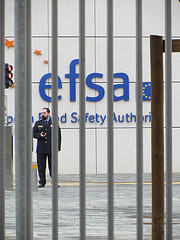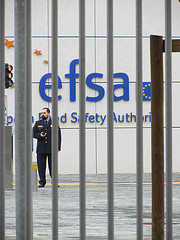Europe : The EFSA finally decides in favour of beekeepers and consumers

Press release of European Coordination Via Campesina
(Brussels – 31 January 2013). In answer to a request of the European Commission, the European Food Safety Authority (EFSA) has just published an opinion on the evaluation of the risks posed to bees and other pollinators by the use of insecticides of the neonicotinoid family.*
The European Coordination of la Via Campesina (ECVC) notes that the EFSA has not taken into account all available scientific literature, in particular that literature which reveals synergies with pathogens. In spite of this, the EFSA still concludes that there are high proven risks.
Therefore ECVC calls on the European Commission to immediately suspend authorizations not only for clothianidin-, imidacloprid-, and thiamethoxam-based pesticides, but also for other products of the same chemical family, as these have the same mode of action.
The EFSA also recognizes that the data contained in the Marketing Authorization Applications (MAA) filed by the industry do not permit an evaluation of all the risks to bees and other pollinators. Therefore these pesticides should not benefit from an authorization for sale. These insecticides contaminate the environment on a long-term basis and are also problematic for many species, in particular aquatic organisms and birds.
ECVC reminds that bees and other pollinators are indispensable for food production and that their protection must be a top priority. In its press release the EFSA also states that the protection of bees is essential.
The contribution of pollination to food production has been estimated at more than USD 153 billion per year at global level, to be compared with the profits generated by neonicotinoids for the European economy, estimated at EUR 4.5 billion by the industry itself.
ECVC notes that the ban of several years on these products in Italy has not led to a decrease in maize production. It asserts that agriculture must evolve towards other production methods (i.e. agroecology and organic) that make it possible for it to do away with the use of these dangerous products which are harmful to human health and the environment.
Contact: Jean Sabench (Confederation Paysanne – FR, ES), +33673912378
Jose Manuel Benites (COAG – EN, ES) + 34619869000
*The products in question contain the active substances clothianidin, imidacloprid and thiamethoxam

